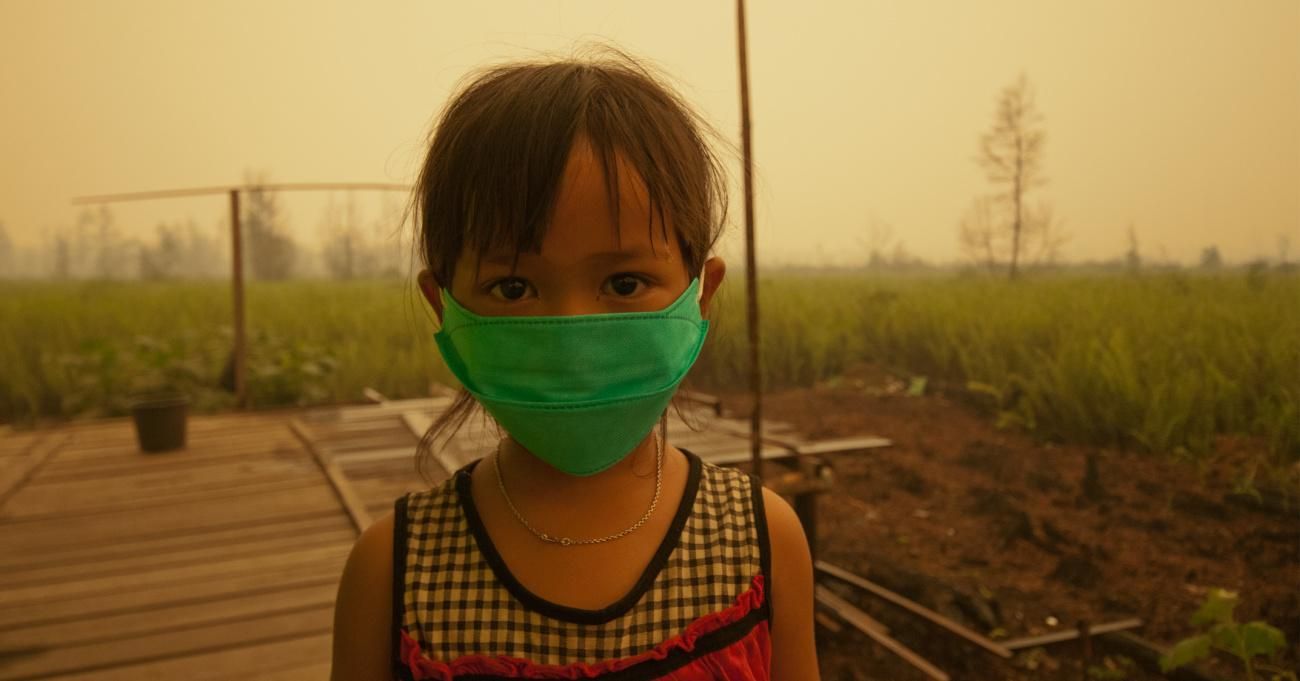
A new study released Wednesday by researchers at the University of Chicago showed that air pollution is cutting short the average global citizen's life by more than two years, with people in parts of the world dying as many as eight years earlier than they would without exposure to pollution.
"The combustion of the same fossil fuels that releases life-threatening air pollution also involves the release of greenhouse gases that increase the odds of disruptive climate change."
—AQLI
In India, the average person could live six years longer if pollution from some of the smallest particulate matter (PM 2.5) was reduced to acceptable levels. In the northern part of the country—home to 248 million people—life expectancy would increase by eight years.
More than 500 million people in places including Nepal, Peru, and Indonesia would live an average of five years longer if their governments were to comply with the guidelines, and more than one billion people would live at least three years longer on average.
The research revealed "very worrying data," Kwame McKenzie of the health policy charity Wellesley Institute said.
PM 2.5 pollution shortens more lives around the globe than smoking, unsafe water and poor sanitation, car accidents, and HIV/AIDS, according to the research.
The researchers noted that relatively little attention has been paid to the public health threat posed by air pollution around the world, particularly in parts of the Global South where policymakers and NGOs are focused on other public health crises:
The health discourse in Sub-Saharan Africa has centered on infectious diseases such as HIV/AIDS and malaria. About 10% of health expenditures in the region go towards combating HIV/AIDS or malaria. However, a comparison shows that particulate pollution’s impact on life expectancy is no less serious. In Nigeria, air pollution is second only to HIV/AIDS in terms of its impact on life expectancy—shaving off more years than malaria and water and sanitation concerns. In the Democratic Republic of Congo, it is second only to malaria. In Ghana, it ranks as the deadliest of these threats, while in Cote d’Ivoire it shortens life by about the same amount as those communicable diseases.
In the U.S., the study says, air pollution was reduced by about 66% since the passage of the Clean Air Act in 1970, and Americans' life expectancy has gone up since then by 1.6 years.
In the U.S., the researchers noted, a feedback loop has emerged in recent years as wildfires fueled by the climate crisis have grown larger and more common.
"The combustion of the same fossil fuels that releases life-threatening air pollution also involves the release of greenhouse gases that increase the odds of disruptive climate change," according to the report.
This content originally appeared on Common Dreams - Breaking News & Views for the Progressive Community and was authored by Julia Conley.
Julia Conley | Radio Free (2021-09-01T15:24:31+00:00) Billions of People Could Live Years Longer If Policymakers Reduce Air Pollution: Study. Retrieved from https://www.radiofree.org/2021/09/01/billions-of-people-could-live-years-longer-if-policymakers-reduce-air-pollution-study/
Please log in to upload a file.
There are no updates yet.
Click the Upload button above to add an update.